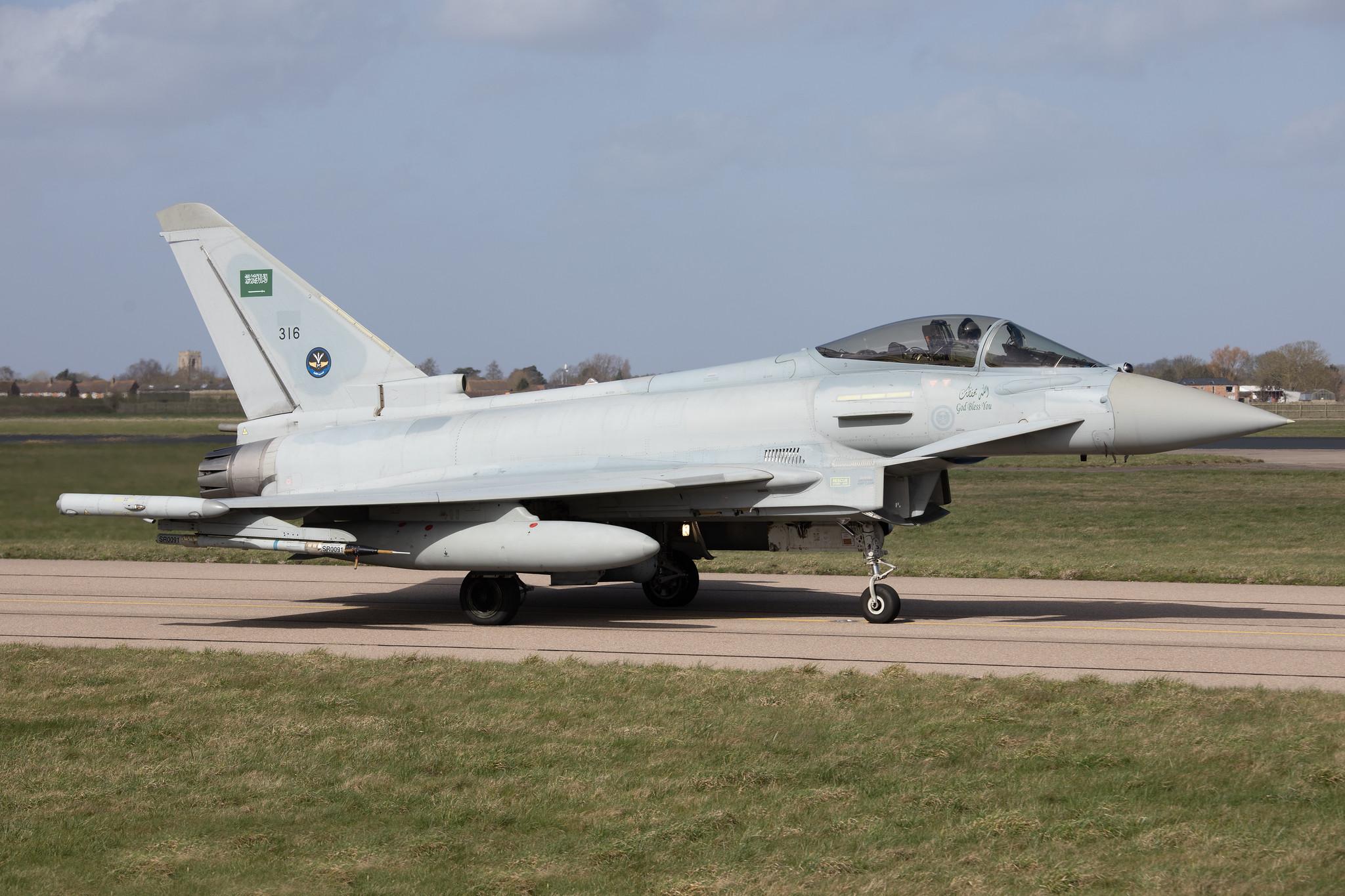UK Prime Minister Lobbying Germany Over Eurofighter Sale To Saudi Arabia

Eurofighter Typhoon
LONDON–British Prime Minister Rishi Sunak is reportedly lobbying German Chancellor Olaf Scholz to allow a potential sale of Eurofighter Typhoon combat aircraft to Saudi Arabia.
As one of the four nation partners in the Eurofighter program, Germany has been delaying a follow-on sale of 48 aircraft to Riyadh because of Saudi Arabia’s involvement in the conflict in Yemen and over the death of journalist Jamal Khashoggi in Istanbul five years ago. A memorandum of intent was agreed to in early 2018 and is potentially worth more than £5 billion ($6 billion).
The London Times and Germany’s Handelsblatt newspapers have reported that the UK had been considering using a legal clause that could temporarily force Germany out of the program.
Parts that would have been made by German industry would then be produced by other partner nations.
But the reports suggest the UK is stepping back from such plans over concerns it could muddy the defense and industry relationships between the two countries.
Such an approach could have also resulted in even lengthier delivery times as the components sourced from other countries would have had to be recertified as they were not produced at the original source.
The UK sees the potential Saudi order as strategic for its relations with Saudi Arabia as well as for maintaining skills and capability ahead of the Global Combat Air Program, which Saudi Arabia is also interested in joining. Saudi Arabia already purchased 72 Eurofighters and is believed to want the 48 to replace its aging Panavia Tornados, a type which has already been retired from the UK inventory.
Handelsblatt said the ruling coalition in Germany led by Scholz had agreed to not allow arms exports to countries involved in the Yemen conflict. Saudi Arabia had led a regional coalition trying to prevent the Houthi movement from taking control of the country.
Berlin’s policy had prevented already contracted transfers of spare parts and weapons to equip the aircraft. This was lifted in September 2022, but deliveries of new equipment were not.
Despite Germany’s so-called Zeitenwende or turning point in international relations prompted by Russia’s invasion of Ukraine, the country’s defense equipment export policies remain as strict as they were before the war began. This is despite statements from ministers that they could change.
In a speech about German plans for a new security policy in September 2022, former German Defense Minister Christine Lambrecht said, “which partner should invest with us in projects if he always has to fear that we will prevent exports?”
Concerns about Germany’s approach to defense exports have also been a sticking point in joint projects with France, including with the Future Combat Air System (FCAS) program.
Michael Schoellhorn, CEO of Airbus Defense and Space and president of Germany’s aviation industry association BDLI, has previously said that Germany’s export rules “stand in the way of the desired expansion of cooperation and undermine the European idea.”
